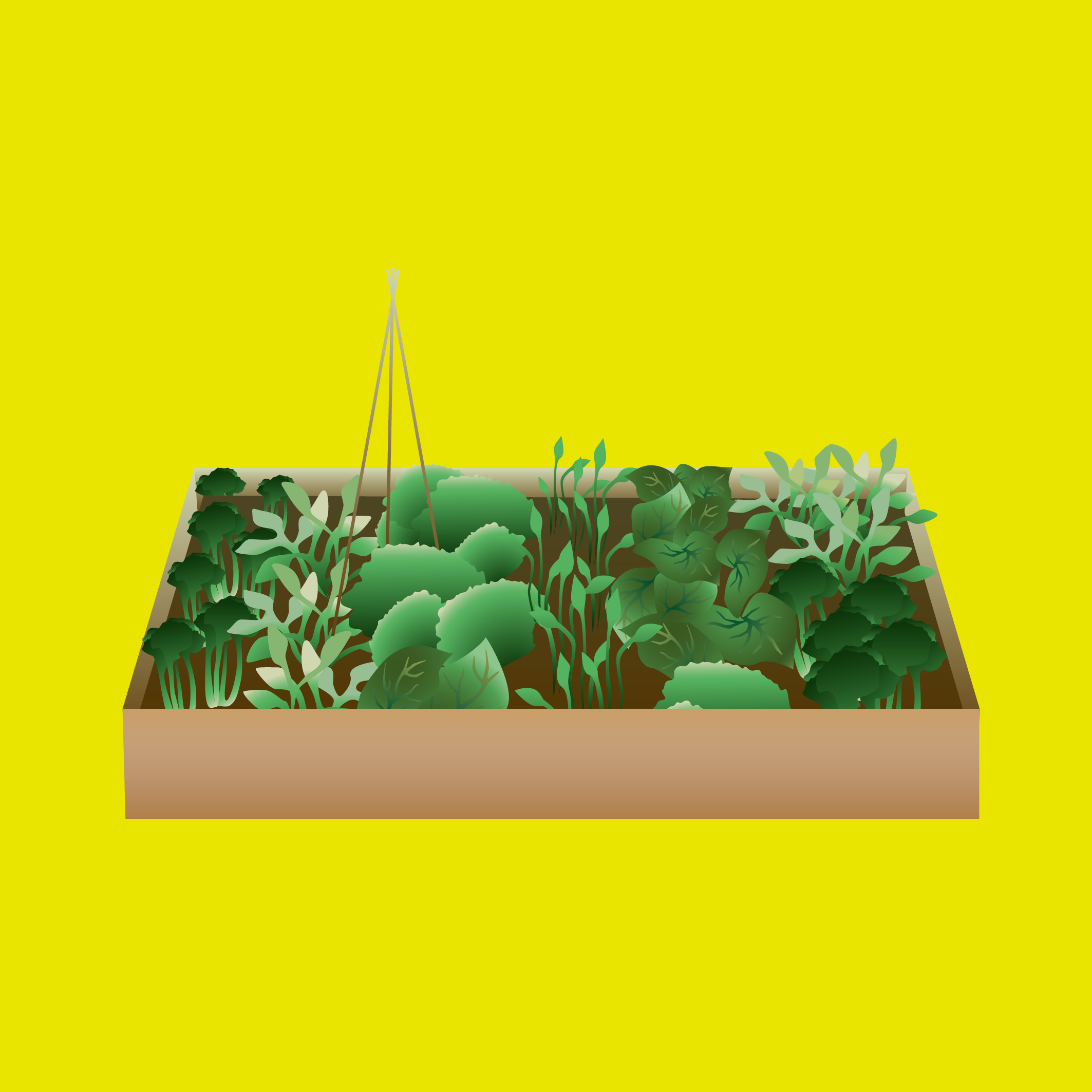Why
It’s the most ‘local’ way to obtain your food.27
It’s the most satisfying way to obtain your food.
It will help green your local environment - attracting bees and other pollinators.
It will enhance your local environment.
It will connect you to nature and help you appreciate the role of natural cycles necessary for plant growth.
It will help create food sovereignty and independence from the global carbon-intensive food system.
It will improve your mental and physical health.
How
Understanding how things grow will help you appreciate the importance of it. Here are some ways you can begin:
Join or create a community garden with your neighbours. Often public parks require official permission, but if you are improving an area, like a neglected green space, there's no need to get approval before taking action.
Ask your council to create a pollinator action plan.
Install window-sill planter boxes made from recycled or upcycled materials and ensure they have access to sunlight. Plants that work best for window-sill gardens include herbs, leafy greens, legumes, small root vegetables, succulents, and tomatoes.
If you can't grow sideways, create a vertical garden, plant wall, or grow climbing plants.
Grow flowers that protect the bees. Here are some tips. Always avoid imported flowers as they carry a higher carbon footprint.
Good soil is key! Use high-quality potting soil and planters with proper drainage (at least one hole) to promote plant growth.
For plants that do not require drainage holes, fill glass jars with soil atop a bottom layer of pebbles. These plants include green onions, garlic, sprouts, microgreens, and wheatgrass.
Feed your soil with compost from your kitchen waste. This way you can nourish and promote your plant growth whilst diverting your food waste from landfill.
Never use peat-based compost or soil additives.
Collect rainwater to water your plants.
Did you know?
Bees are great indicators of a healthy environment but due to the current climate breakdown and ecological collapse, they are at risk. Shifts in the seasons are disrupting flowering times and the availability of food, shelter, and nesting sites. Climate change also brings extremes of drought, heavier rainfall, and flooding. Bees and pollinating insects are struggling to survive.
Every three bites we consume rely on bee pollination. (Friends of Earth, 2021)
Spread the word
In order to keep warming below 1.5C we need to halve emissions by
2030. Share this action and help play a part in reversing climate change.


